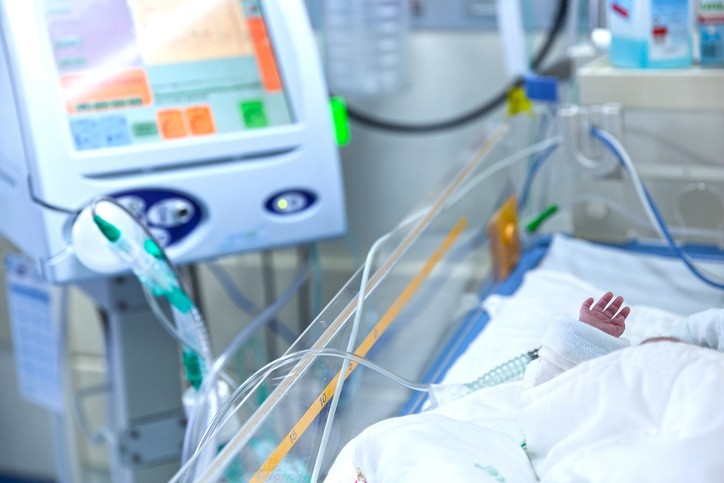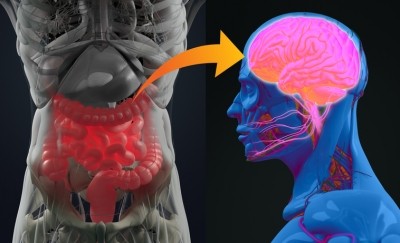Study: Klebsiella overgrowth linked to early brain injury in extreme premature infants

Premature infants are at substantial risk for suffering from perinatal white matter injury, which is characterized by loss of premyelinating oligodendrocytes, cells that are involved in creating the myelin sheaths around axons. It is the most common form of injury to the preterm brain and is associated with a high risk of neurodevelopmental impairment.
Scientists are still trying to figure out why perinatal brain injury survivors of premature birth have a predilection for periventricular cerebral white matter, which is now the most common cause of brain injury in preterm infants and the leading cause of chronic neurological morbidity.
To gain more insight into the gut-brain axis of premature neonates, researchers from University of Vienna and the Medical University of Vienna investigated the role this axis plays in the brain development of extreme preterm infants.
The study
The research team profiled the gut microbiota, immunological, and neurophysiological development of 60 extremely premature infants, which received standard hospital care including antibiotics and probiotics.
The premature infants, born before 28 weeks gestation and weighing less than 1 kilogram, were monitored for several weeks or months. Using state-of-the-art methods, the team examined the microbiome using 16S rRNA gene sequencing and other methods to analyze blood and stool samples, brain wave recordings (e.g. aEEG) and MRI images of the infants' brains.
Starting points for the development of appropriate therapies are provided by the biomarkers that the interdisciplinary team was able to identify.
Findings
"Our data show that excessive growth of the bacterium Klebsiella and the associated elevated Gammadelta T-cell levels can apparently exacerbate brain damage," explained Lukas Wisgrill, Neonatologist from the Division of Neonatology, Pediatric Intensive Care Medicine and Neuropediatrics at the Department of Pediatric and Adolescent Medicine at the Medical University of Vienna.
The researchers also found that maturation of electrocortical activity is suppressed in infants with severe brain damage. This is accompanied by elevated Gammadelta T-cell levels and increased T-cell secretion of vascular endothelial growth factor along with reduced secretion of neuroprotectants.
“Notably, Klebsiella overgrowth in the gut is highly predictive for brain damage and is associated with a pro-inflammatory immunological tone. These results suggest that aberrant development of the gut-microbiota-immune-brain axis may drive or exacerbate brain injury in extremely premature neonates and represents a promising target for novel intervention strategies,” the authors noted.
Conclusion
“These results suggest that aberrant development of the gut-microbiota-immune-brain axis may drive or exacerbate brain injury in extremely premature neonates and represents a promising target for novel intervention strategies,” the authors noted.
Patterns
The researchers noticed patterns in the microbiome that are linked to the progression and severity of brain injury.
“We noticed very early that there is a typically very stable and persistent cluster of microbiota,” said Seki. “What is interesting about this cluster, is that it often establishes during neurophysiological maturation. And in it, we observed an overgrowth of bacteria from the genus Klebsiella. We found that Klebsiella abundance correlates with the lack of secreted neuroprotectants during neurophysiological maturation + elevated pro-inflammatory markers shortly post-delivery. Infants with brain damage often have Klebsiella-type microbiota for long periods during hospitalization and in our research we revealed details for interactions along the gut microbiota-immune-brain axis that lead to aggravations of brain injury due to an interplay of Klebsiella overgrowth in the gut and inflammatory response.”
"Crucially, such patterns often show up prior to changes in the brain. This suggests a critical time window during which brain damage of extremely premature infants may be prevented from worsening or even avoided,” added David Berry, microbiologist and head of the research group at the Centre for Microbiology and Environmental Systems Science (CMESS) at the University of Vienna as well as Operational Director of the Joint Microbiome Facility of the Medical University of Vienna and University of Vienna.
Probiotics
Seki said all infants in their clinical wards receive probiotics, specifically, Infloran (an Australian-produced commercial probiotic consisting of Bifidobacterium bifidum and Lactobacillus acidophilus), until the corrected age of 34 weeks of gestational age.
“In general, probiotics are widely discussed as a potentially protective therapy against enteric pathogens. Indeed, prescription of probiotics seems to lower the risk for sepsis and NEC but fails to completely eradicate their occurrence. Nobody knows why. We lack knowledge and we don't know which mechanisms underlie 100% successful colonization of probiotic bacteria. There's a lot of ongoing research however, both ecological and immunological, and as our knowledge grows this hopefully will change as well,” said Seki.
Burning Questions
Seki said he still wants to know what the long term neurological outcome is for patients that harbored klebsiella-type microbiota for long periods during hospitalization.
“Many brain ‘injuries’ might have been unseen. Aberrant development of the gut microbiota has been linked to psychiatric and neurological diseases during childhood (ADHD, learning disabilities, etc.). We'll wait a couple more years and hopefully be able to track those infants as they become 6 years old and start going to school,” he said.
Other than that, he said the team plans to dig deeper and try to reveal mechanisms that underlie the establishment of Klebsiella-dominated gut communities in premature infants.
“Hopefully this will open up options for novel therapeutic interventions that do not solely rely on administration of antibiotics.”
Research is ongoing
With children's motoric and cognitive skill development only becoming apparent over several years, the researchers will continue to follow the subjects of the initial study to understand how this early development of the gut-brain axis plays out in the long term.
"The children's parents have supported us in the study with great interest and openness," said Seki. "Ultimately, this is the only reason we were able to gain these important insights. We are very grateful for that."
Source: Cell Host & Microbe
(2021) DOI: 10.1016/j.chom.2021.08.004
"Aberrant gut microbiota-immune-brain axis development in premature neonates with brain damage”
Authors. D. Seki et al.














